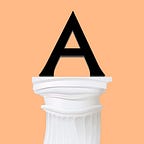In 1965, the philosopher and cognitive scientist Aaron Sloman published a useful little paper tersely titled, ‘Necessary’, ‘A Priori’, And ‘Analytic’. Sloman began by stating that people tend to use these terms interchangeably, as if they’re equivalent. I thought it would be helpful to give an even briefer summary of Sloman’s paper, as it can be tricky for the untrained mind to keep all the plates spinning. By far the easiest way to understand these distinctions is using a concentric circle model.
An analytic truth is something like: ‘All triangles have three sides’ or ‘all bachelors are unmarried men’. These propositions are true by definition. Which is to say their truth value depends on two things: (1) the words and (2) the relation between them. All analytic truths are also a priori and necessary.
Why are all analytic propositions a priori?
Because their truth-value can be known non-empirically, which is what it means to be a priori. In other words, I don’t have to take to the streets with a clipboard to investigate whether all bachelors are also unmarried. Sloman has a cute footnote here:
One who did this would be doing something unnecessary, but not something irrelevant. Students of psychology and the social sciences may be able to think of examples of similar unnecessary investigations.
So to recap, the truth value of the statement ‘water is H2O’ is clearly knowable through non-empirical investigation alone due to the synonymous relations between the words and, to paraphrase Bill Clinton, what the definition of ‘is’ is.
Why are all analytic truths necessary and why are all a priori propositions necessary?
Let’s now go up one level. We’ve just said that a proposition is a priori if the truth can be known simply by reflecting on it (again, which is why all analytic propositions are a priori). From this it obviously follows that all analytic truths are necessarily true. They simply cannot be otherwise if that’s what the words ‘water’, ‘is’, and ‘H20’ refer to.*
The truth value of ‘water is H20’ is not contingent on external circumstances. But the statement ‘water boils at 100 degrees centigrade’ most certainly is (which is also why it’s an empirical or synthetic truth).
The truth of ‘water is H20’ comes simply from the definition of the words and the relations. If something isn’t contingent, it’s necessary (this distinction is often used to refer to God: his existence is not contingent on anything, he is a necessary being…but that’s a topic for another day). So if no state of affairs could possibly have existed in which the truth value of such a sentence changes, then the proposition is necessary.
Problems:
Our concentric rings model yields the following distinctions, then.
(1) Not all a priori propositions are analytic (you can’t draw a model with a priori at the centre and analytic outside of it).
Okay, so let’s take an a priori proposition again: ‘everything red is coloured’. I can know this is true by virtue of the words and the relations between them, but Sloman asks whether ‘there may be a non-empirical way of acquiring such knowledge by reflecting on the specific nature of certain physical properties (e.g. colours, or shapes).’
(2) Not all necessary propositions are a priori or analytic (you can’t draw a model with necessary at the centre and a priori or analytic outside of it)
Let’s break this down into two claims. There might be some necessary propositions (non-contingent truths) that are not a priori, which is to say we can’t know if they’re true simply by powering up the ol’ brain box and doing some armchair reflection. A good example of this is Goldbach’s conjecture in mathematics. From the Wiki:
Goldbach's conjecture is one of the oldest and best-known unsolved problems in number theory and all of mathematics. It states that every even whole number greater than 2 is the sum of two prime numbers.
The conjecture has been shown to hold for all integers less than 4 × 10^18, but remains unproven despite considerable effort.
Goldbach’s conjecture might well be a mathematical and necessary truth about the universe, but there’s nothing in the definition of ‘necessary truth’ to say that it is also a knowable truth.
Next. Are all necessary propositions analytic? You could argue that certain principles from Euclidean geometry express necessary truths. For example, ‘All right angles are equal to one another.’ But the truth of this claim may depend not on the words and the relations between them, but on something else, like the structure of space.
*It should also be noted that logical truths are a subclass of a priori propositions. A logical truth is: ‘If A, then B. A, therefore B’. You should be able to see why these are necessarily true.
If you liked this, please do subscribe. Maybe give it a share to spread the gospel of rationality. And if you want to support my work, you can do so with a paid Substack subscription or using the following methods:
https://www.patreon.com/Ideas_Sleep
BTC wallet address: 1KHB3Mq7njTGfquABcREsiywaxmDbP2NPY
And subscribe to my YouTube Channel here.












